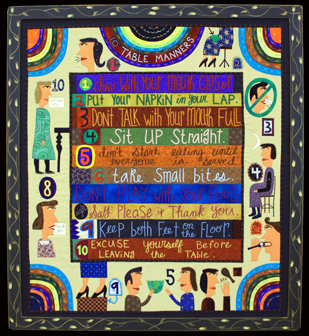Etiquette vs Manners
Etiquette and manners are often discussed as if they are synonymous, but there are differences between the two. Both are present in every society and are considered essential for the functioning of a society. However, etiquette refers to the code of polite behavior in society, while manners are about behaving, speaking, and living in accordance with the expected patterns of behavior. The main difference between the two is that etiquette is a specific code of conduct, while manners are more general.
What is Etiquette?
Etiquette is the code of polite behavior in society and is more specific than manners. It is considered superior to manners, as it goes beyond the understanding of manners. However, if a person has no manners, they cannot be expected to have etiquette, as etiquette is nurtured on the foundation of good manners. Learning etiquette requires conscious effort, such as understanding how to behave at a particular function or knowing which fork or spoon to use.
What are Manners?
Manners are general polite behavior taught from childhood by parents and schools, reflecting the importance given to good manners within society. As a child grows, they internalize good manners, which then become part of their behavior. Examples of manners include saying ‘thank you’ after receiving something, saying ‘please’ when requesting something, saying ‘sorry’ when hurting someone, and respecting elders.
Key Takeaways
- Etiquette refers to the code of polite behavior in society, while manners are about behaving, speaking, and living in accordance with the expected patterns of behavior.
- Manners are more generalized, unlike etiquette, which dictates a specific code of conduct.
- Individuals learn manners from childhood through instruction and socialization, but etiquette has to be specially learned.
